A Call for Heightened Attention to Haiti's Crisis
Haiti, a country grappling with severe political and social instability, finds itself at the forefront of a crisis that demands urgent international intervention. At the heart of this crisis is the growing menace of gang violence that has tightened its grip on the region since the tragic assassination of President Jovenel Moïse in July 2021. In response, Prime Minister Garry Conille of Haiti and President William Ruto of Kenya have combined forces to mobilize greater global support for a United Nations-backed peacekeeping mission in the region. This operation, designed to subdue violent gangs and restore order, faces monumental challenges that have yet to be surmounted.
Current Efforts by Peacekeeping Forces
Currently, nearly 400 Kenyan officers are deployed in Haiti's peacekeeping mission, complemented by police officers and soldiers from Jamaica. However, this is only a fraction of the promised deployment. Countries such as Chad, Benin, Bangladesh, and Barbados had originally pledged to contribute part of the 2,500 personnel required to effectively combat the increasing violence. Despite these commitments, the present force falls critically short, leaving gaps both in manpower and resources that are vital to maintaining peace and security in the area.
The Plight of Limited Resources and Support
Despite the best intentions and pledges, the mission's budget paints a grim reality. While $85 million dollars have been pledged, only $68 million of this has been realized, falling drastically short of the $600 million required to fulfill the mission's objectives. This financial deficit is more than a number; it equates to lives and stability lost, and without stronger international commitment, these objectives remain unattainable. President Ruto, acknowledging these immense challenges, has announced plans to send an additional 600 officers by January. Yet, these efforts are dwarfed by the larger requirement needed to contain the violence and ensure actual peace in Haiti.
Calls for Upgraded Missions and Complex Realities
Correcting the funding and capacity deficiencies has initiated discussions on transforming the current framework into a U.N. peacekeeping mission. This move, however, met with a lukewarm response from the U.N. Security Council in October. The necessity of redefining the mission is underscored by the new power distribution in Haiti where gangs now claim control over as much as 80% of Port-au-Prince, the capital. With this alarming sprawl, heinous crimes such as killings, rapes, and kidnappings have skyrocketed. Moreover, civilian vigilante groups have responded to these unrelenting crimes with violence, further muddling the situation's complexity and severity.
Reaching Out to Broader International Alliances
In light of these dire circumstances, Prime Minister Conille has continued to seek additional backing from nations including Brazil and Mexico. Strengthening the coalition is imperative for not just stabilizing the troubled nation, but for bringing lasting peace. The precarious state of Haiti is far from a regional issue; it echoes the global need for cooperation and action. The death toll tragically escalates with every attack, reflecting the desperate cry for intervention felt by thousands who have been displaced amid the chaos.
The Humanitarian Impact and The Road Ahead
Amidst these tense and volatile conditions, the human toll of the crisis is monumental. Innocent civilians caught in the crossfire have faced the stark realities of violence, displacement, and fear that accompany gang dominance. The recent death count at 115 individuals only skims the surface of the extensive humanitarian wake left behind by the power struggle. The spotlight on immediate and substantial action cannot be brighter, as each passing day further entrenches the crisis and amplifies the need for coordinated and decisive intervention from the international community.

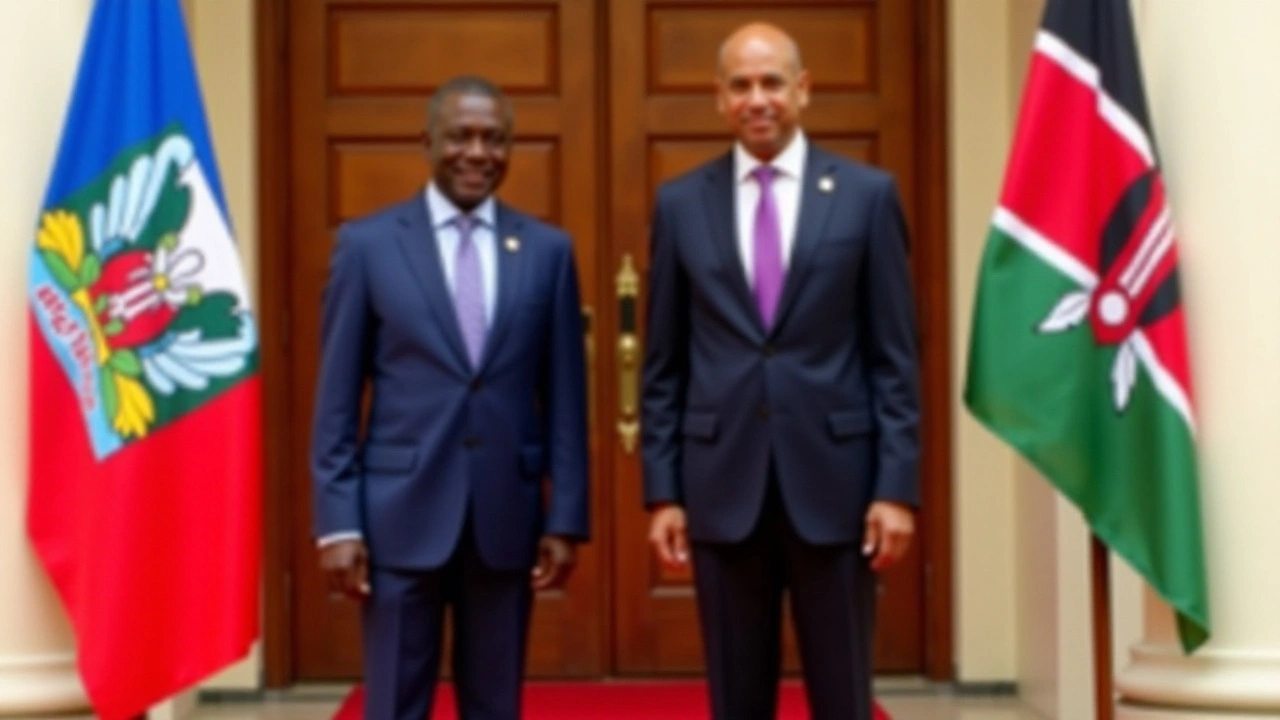

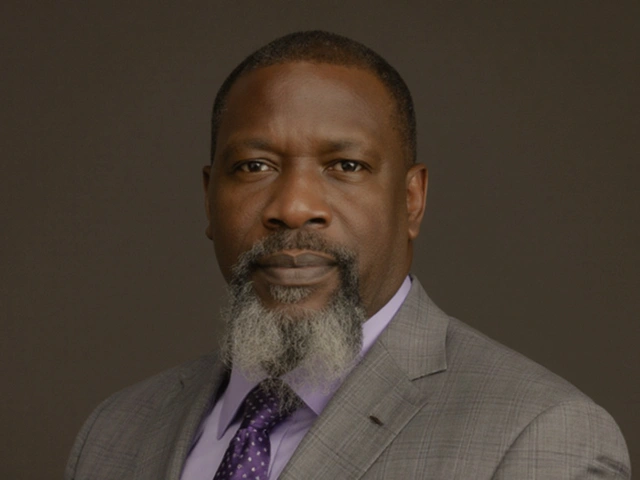



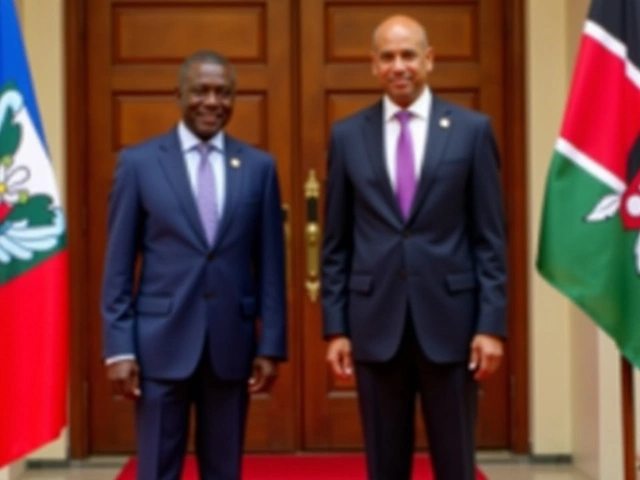
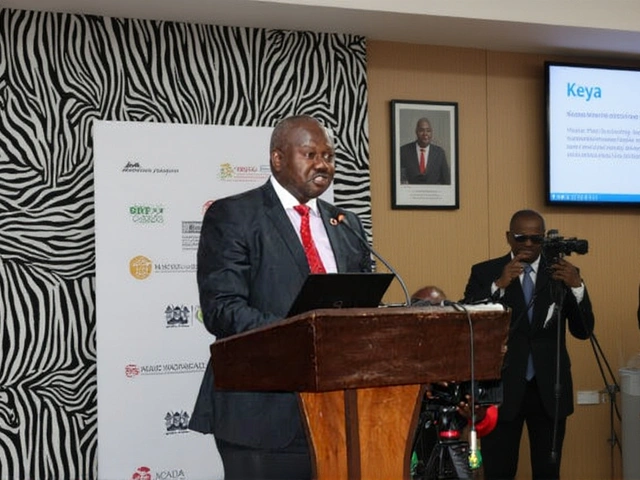
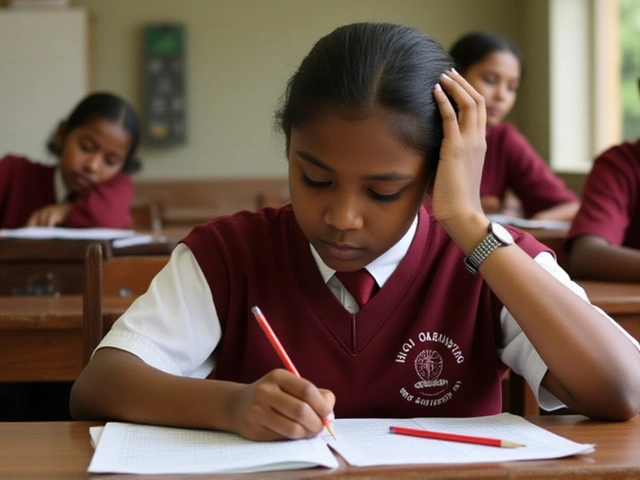
Kaushal Skngh
October 12, 2024 AT 07:33Looks like the UN keeps promising more troops but never delivers the full package. It's frustrating to watch the same empty headlines.
Harshit Gupta
October 14, 2024 AT 15:07Honestly, the world’s leaders are just playing political chess while Haitians bleed on the streets! Kenya stepping up is a bold move, but we need genuine global resolve, not half‑hearted token gestures. The UN’s tepid response is a slap in the face for every victim. If the international community wants to be taken seriously, they must put money where their mouths are and send the full 2,500‑plus peacekeepers now.
HarDeep Randhawa
October 16, 2024 AT 22:40Well…? The numbers keep changing!!! 400 Kenyan officers? That’s a drop in the bucket!!! And where are the promised troops from Chad, Benin, and Bangladesh??? The funding gap is staggering… $68 million out of $600 million… It’s a disaster in the making!!!
Nivedita Shukla
October 19, 2024 AT 06:13In the quiet echoes of Port‑au‑Prince, the shadows of gangs whisper the tale of a nation abandoned. The cries of mothers and children become the verses of a tragic poem we all ignore. Every unfilled promise is a stanza of despair, each un‑funded dollar a word that never reaches the page of peace. If we truly care, we must rewrite this story with actions, not just lofty speeches.
Rahul Chavhan
October 21, 2024 AT 13:47We need more boots on the ground, more resources, and a real plan. The people of Haiti deserve safety and a chance to rebuild.
Joseph Prakash
October 23, 2024 AT 21:20Kenya’s commitment is 🔥 but the UN’s lag is 😒. We can’t let the budget shortfall keep the hope from shining 🌟. More funds, more troops, more urgency! 🚀
Arun 3D Creators
October 26, 2024 AT 04:53It’s a mess and the world is sleeping while Haitians suffer we need real help not just talk
RAVINDRA HARBALA
October 28, 2024 AT 11:27The failure of the mission can be traced to a lack of strategic coordination and a flawed mandate. Without clear rules of engagement, even a fully staffed force would struggle to achieve lasting security.
Vipul Kumar
October 30, 2024 AT 19:00Let’s remember that peacekeeping isn’t just about numbers. Training, cultural awareness, and community engagement are crucial. If we invest in those areas, the troops on the ground will be more effective and the locals will trust them.
Priyanka Ambardar
November 2, 2024 AT 02:33Stop waiting for the UN to act! Nations like Kenya are already stepping up 😊. If other countries care, they should follow suit and put real muscle behind the mission.
sujaya selalu jaya
November 4, 2024 AT 10:07The funding gap is huge and it hurts the mission’s effectiveness.
Ranveer Tyagi
November 6, 2024 AT 17:40Here’s the hard truth!!! The UN’s budget process is a bureaucratic nightmare!!! To close the $532 million gap, donor countries must release funds immediately!!! Delay means more casualties!!!
Tejas Srivastava
November 9, 2024 AT 01:13Seeing the headlines makes me wonder… will the world ever learn? The situation keeps spiraling, and every day without action writes another tragic line in Haiti’s story.
JAYESH DHUMAK
November 11, 2024 AT 08:47The current configuration of the United Nations peacekeeping operation in Haiti suffers from structural deficiencies that compromise its overall efficacy. Firstly, the shortfall in personnel – with only a fraction of the pledged 2,500 troops deployed – creates operational gaps that hostile groups readily exploit. Secondly, the financial disparity between the $68 million received and the $600 million required severely limits logistical capabilities, from transport to medical support. Thirdly, the lack of a unified command structure among contributing nations generates coordination challenges on the ground. Moreover, cultural and language barriers between peacekeepers and local populations undermine trust‑building efforts essential for sustainable security. Additionally, the presence of civilian vigilante groups introduces an unpredictable element that can exacerbate violence rather than contain it. The United Nations Security Council’s lukewarm response further signals a hesitancy to commit resources, which emboldens perpetrators. Historically, similar missions have demonstrated that a robust, adequately funded, and well‑mandated force yields better outcomes. It follows that a comprehensive reassessment of the mission’s mandate is imperative. The revised mandate should encompass not only kinetic operations against gangs but also support for rule‑of‑law institutions. Funding mechanisms must be streamlined to allow rapid disbursement of resources, avoiding bureaucratic delays. Capacity‑building programs for Haitian police should be integrated to ensure a smooth transition post‑mission. International donors need to honor their financial commitments with transparency to maintain credibility. Finally, a clear exit strategy, aligned with measurable security indicators, will provide a roadmap for long‑term stability. In sum, without addressing these interlinked challenges, the peacekeeping effort risks becoming a symbolic gesture rather than a catalyst for genuine peace.
Santosh Sharma
November 13, 2024 AT 16:20Absolutely, the detailed breakdown hits the nail on the head. We need that strategic overhaul now.
yatharth chandrakar
November 15, 2024 AT 23:53Agreed. Prioritizing rapid funding release and unified command could turn the tide for Haiti.
Vrushali Prabhu
November 18, 2024 AT 07:27Yea, lets hope they act quick n fix dis mess!
parlan caem
November 20, 2024 AT 15:00All this talk is just smoke – send in the troops already or stop wasting words.